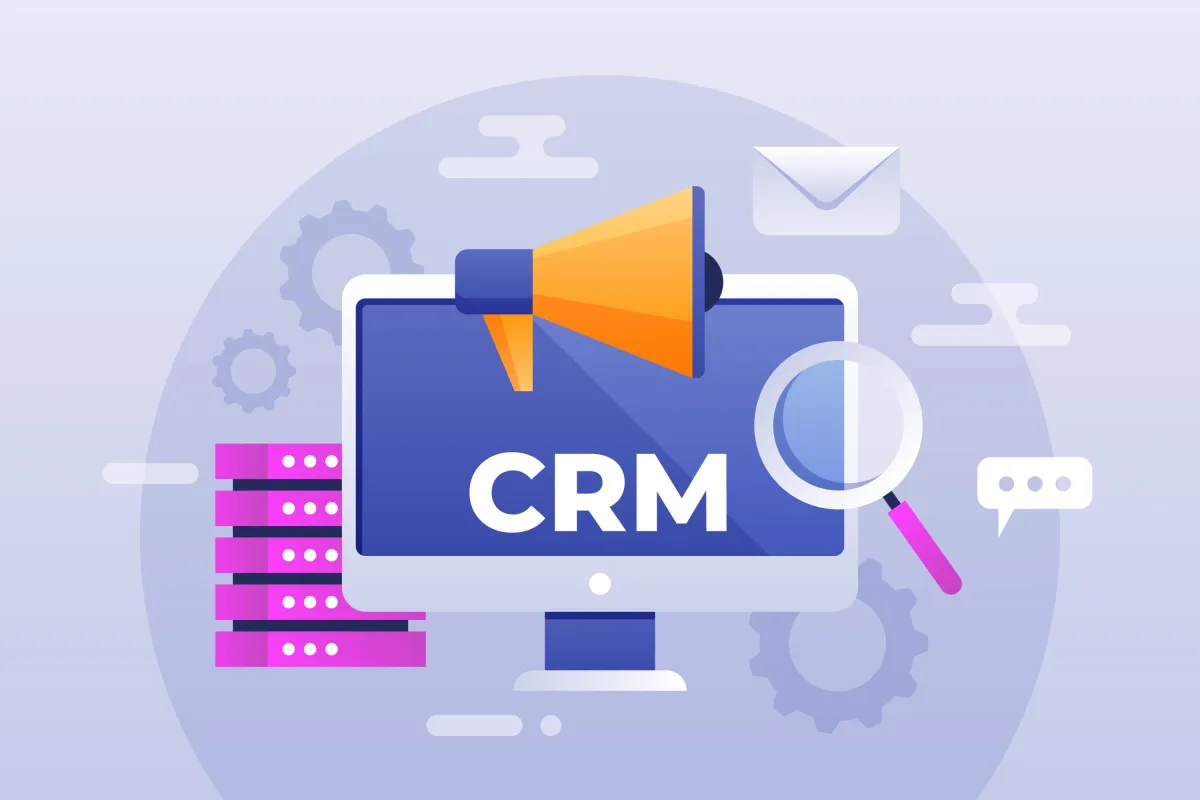Contact Us
Sales@RedTreeProduction.com
(307) 365-6220
Our Blogs
Welcome to our blog, where we dig deeper into the innovative world of our services. Here, you'll find invaluable insights, expert tips, and success stories that showcase how our cutting-edge solutions are transforming businesses. Explore our blog and unlock the potential to revolutionize your sales journey.

Top CRM Strategies to Enhance Client Retention for Insurance Professionals
Introduction
In the insurance industry, client retention is a pivotal element that influences business success directly. Just as in real estate, where retaining clients ensures a steady revenue stream and fosters growth through referrals, the same principle applies to insurance. Customer Relationship Management (CRM) systems have become essential tools for boosting client retention by streamlining communication, personalizing interactions, and utilizing data analytics. This article delves into how insurance professionals can employ CRM strategies to enhance client retention and overall service quality.
Understanding the Role of CRM in Client Retention
CRM systems are advanced software platforms designed to manage and analyze customer interactions and data throughout the client lifecycle. Much like a real estate CRM, these systems help businesses stay connected with clients, streamline processes, and improve profitability. In the realm of client retention, CRM systems offer functionalities that support personalized communication, automate workflows, and provide valuable insights.
CRM systems consolidate various client-related data into a central repository, enabling insurance professionals to track client interactions, preferences, and history. This integrated information allows for more informed decision-making and helps in devising tailored strategies that cater to clients' needs.
Personalizing Client Interactions
Personalization is crucial for nurturing strong client relationships and boosting retention. Clients today expect experiences tailored to their individual preferences and needs. CRM systems provide the necessary tools to achieve this by leveraging data to personalize interactions and offers.
Using CRM data, insurance professionals can create detailed client profiles, including information such as past interactions, policy details, and preferences. This data allows for targeted communication strategies, such as sending customized policy recommendations or relevant updates. For example, if a client has shown interest in a specific type of insurance, the CRM can trigger notifications about new products or changes in policy terms that might interest them.
Automated messages triggered by specific client actions or milestones can further enhance personalization. This ensures that clients receive timely and relevant information without manual intervention, improving their overall experience.
Leveraging CRM for Effective Communication
Effective communication is essential for successful client retention. CRM systems offer a range of tools and features that facilitate seamless communication with clients, similar to how a real estate CRM streamlines property dealings. These include automated reminders, follow-ups, and updates that help maintain engagement and keep clients informed of important information.
Automated reminders can be set for various client-related activities, such as policy renewals, premium payments, or upcoming meetings. This proactive approach minimizes the risk of missed deadlines and ensures clients are always aware of their policy status. Similarly, automated follow-ups can be used to check in with clients after significant interactions, such as claim submissions or policy changes, to address their needs and concerns promptly.
CRM systems also support communication through multiple channels, including email, SMS, and social media. This omnichannel approach ensures clients receive consistent and timely information regardless of their preferred communication method.
Implementing Automated Workflows for Efficient Service
Workflow automation within CRM systems significantly enhances service efficiency by streamlining repetitive tasks and processes, akin to how automation improves real estate transactions. Automated workflows help insurance professionals manage client interactions more effectively by reducing manual effort and ensuring consistency in service delivery.
For example, a CRM system can automate the process of sending welcome emails to new clients, scheduling follow-up calls, and updating client records. This not only saves time but also ensures that no important tasks are overlooked. Automated workflows can also handle routine tasks, such as generating policy documents or processing claims, further enhancing operational efficiency.
By implementing automated workflows, insurance professionals can focus more on building relationships with clients and addressing their unique needs, rather than being bogged down by administrative tasks.
Utilizing Data Analytics to Anticipate Client Needs
Data analytics plays a crucial role in anticipating client needs and preferences. CRM systems offer robust analytics tools that allow insurance professionals to gain insights into client behavior, trends, and preferences. This is similar to how data analytics in real estate helps realtors predict market trends and client preferences.
For instance, CRM data can reveal patterns in client behavior, such as a tendency to review policy documents during certain times of the year. This insight can be used to anticipate when clients might be seeking policy updates or additional coverage options. Similarly, analyzing client feedback and satisfaction scores can help identify areas for improvement and highlight opportunities for enhancing the client experience.
Predictive analytics, a subset of data analytics, uses historical data to forecast future client behavior. This can be particularly useful for identifying clients who may be at risk of leaving or those who could benefit from additional services. By addressing these needs proactively, insurance professionals can enhance client satisfaction and retention.
Building Stronger Relationships through Regular Engagement
Consistent client engagement is essential for maintaining strong relationships and ensuring long-term retention. CRM systems provide tools to schedule and track engagement activities, helping insurance professionals stay connected with clients, much like how a realtor maintains client relationships in the real estate industry.
Techniques for maintaining consistent engagement include sending regular newsletters, providing updates on policy changes, and scheduling periodic check-ins. CRM systems can automate these activities and track client interactions, ensuring that engagement efforts are timely and relevant.
For example, a CRM system can schedule quarterly check-ins with clients to review their policy needs and offer personalized advice. This regular contact helps build trust and demonstrates a commitment to the client's long-term well-being.
Enhancing Client Support with CRM Tools
Effective client support is a critical component of client retention. CRM systems offer various support features, such as ticketing systems and chatbots, to enhance the client support experience and improve problem resolution, similar to how lending institutions use CRM tools to manage customer queries.
Ticketing systems allow clients to submit support requests, which are then tracked and managed through the CRM platform. This ensures that all issues are addressed promptly and that no requests fall through the cracks. Chatbots provide immediate assistance to clients by answering common questions and directing them to the appropriate resources.
By leveraging these CRM support tools, insurance professionals can offer timely and efficient support, leading to higher client satisfaction and retention.
Tracking and Measuring Client Retention Metrics
Monitoring key client retention metrics is essential for evaluating the effectiveness of CRM strategies and identifying areas for improvement. CRM systems offer tools to track and analyze metrics such as renewal rates, satisfaction scores, and client retention rates, much like how real estate CRM systems track property sales and client interactions.
Renewal rates indicate the percentage of clients who renew their policies, while satisfaction scores provide insights into client contentment with the services provided. By tracking these metrics, insurance professionals can assess the impact of their CRM strategies and make data-driven decisions to enhance client retention.
CRM systems also offer reporting and analytics features that enable professionals to generate detailed reports on client retention metrics. These reports provide valuable insights into trends and patterns, helping insurance professionals make informed decisions and implement targeted strategies to improve retention.
Implementing Feedback Mechanisms to Improve Services
Client feedback is a valuable source of information for continuous improvement. CRM systems provide tools to collect, analyze, and act on client feedback, helping insurance professionals enhance their services and address any issues.
Feedback mechanisms, such as surveys and feedback forms, can be integrated into CRM systems to gather input from clients on their experiences and satisfaction levels. This feedback can then be analyzed to identify areas for improvement and to develop strategies for addressing client concerns.
For instance, if clients consistently provide feedback about delays in service, insurance professionals can use this information to streamline processes and enhance service delivery. By acting on client feedback, insurance professionals demonstrate a commitment to continuous improvement and client satisfaction.
Training and Empowering Your Team to Use CRM Effectively
For CRM strategies to be successful, it is crucial to ensure that your team is proficient in using CRM tools and strategies. Staff training plays a key role in maximizing the benefits of CRM systems and ensuring that all team members are equipped to leverage these tools effectively, just as realtors need to be skilled in using real estate CRM systems.
Training programs should cover the core functionalities of the CRM system, including data entry, communication tools, and analytics features. Additionally, ongoing training and support can help staff stay updated on new features and best practices.
Empowering your team to use CRM effectively involves not only providing training but also fostering a culture of collaboration and continuous learning. Encouraging staff to share insights and best practices can enhance the overall effectiveness of CRM strategies and improve client retention.
Conclusion
In summary, CRM strategies are crucial for enhancing client retention in the insurance industry. By leveraging CRM systems to personalize client interactions, automate workflows, and utilize data analytics, insurance professionals can build stronger relationships, improve service efficiency, and anticipate client needs. Implementing effective communication strategies, tracking key metrics, and using feedback mechanisms further enhance client retention and satisfaction.
Integrating these CRM strategies into daily operations can lead to improved client relationships, higher retention rates, and overall business success. By investing in CRM systems and empowering your team, insurance professionals can create a more personalized and efficient client experience that drives long-term growth and loyalty.
Get in touch with us
We're excited to hear from you! Whether you're eager to learn more about our exciting, ever evolving CRM. If you have questions, or are ready to take your sales journey to the next level, our team is here to assist you.
Contact us today to start a conversation, and let's explore how we can tailor our solutions to meet your specific needs. Your success story begins with that first connection – reach out and discover the possibilities!
(307) 365-6220
Sales@RedTreeProduction.com
Monday - Friday, 8:00 am - 8:00 pm, PST
Start Your Success

Follow Us
Join us in redefining success. Together, we'll collaborate to craft a path that exceeds your sales goals, guiding you towards unparalleled achievement. Your journey to success begins here, with our unwavering support and expertise.
Services
More
Contact Us
Sales@RedTreeProduction.com
(307) 365-6220
© Copyright 2019. Red Tree Production. All rights reserved.
